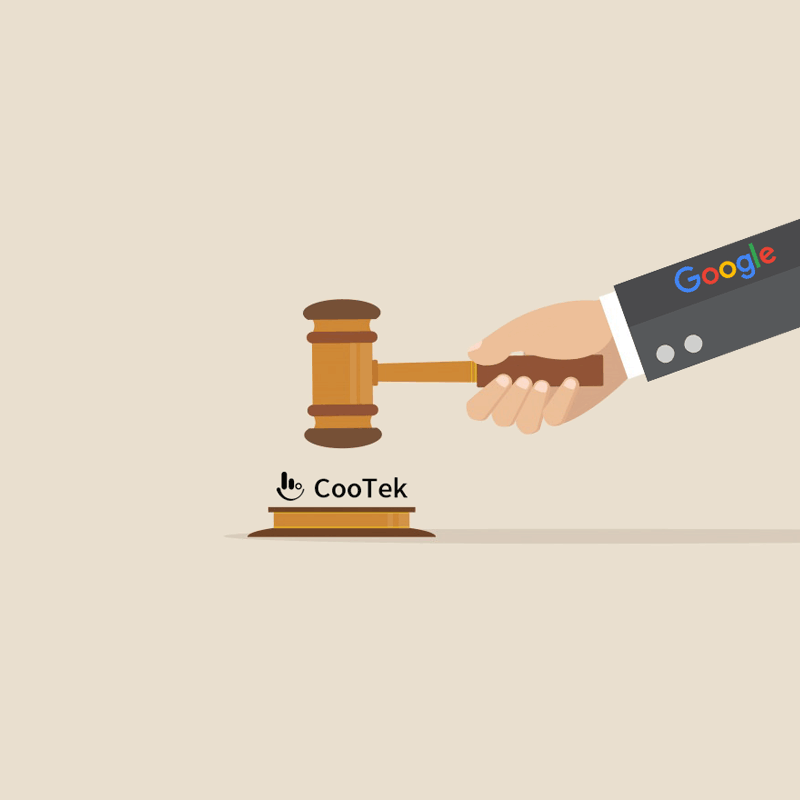
With Android becoming the most popular mobile operating system next to Apple's iOS, many developers race to reach the outstanding market.
But for Google that operates Android's official app store, policing those developers to obey its rules is a difficult task. This resulted in many developers creating malicious apps that ruin the Android experience in general. And Google is not happy.
In its attempt to remove malicious apps from its Play Store, a publicly traded Chinese app developer has been caught in the act.
Here, CooTek has been banned from Google's Play Store, and is also not allowed to anymore use Google's ad platforms to monetize its hundreds of apps.
The move by Google followed a report from BuzzFeed News which found evidence that its apps continued to bombard users with disruptive ads, even after the company claimed it had stopped the behavior.
Based in Shanghai, China, CooTek had hundreds of Android apps available on Google's Play Store, including the popular TouchPal keyboard apps.
The roads to CooTek's ban began early in June.
At that time, the security company Lookout publicly revealed that 238 of the company’s apps contained an adware plugin called 'BeiTaAd'. This malicious software, when installed alongside apps, trigger disruptive ads when the apps weren't in use, the phone was asleep, or even when locked.
“While out-of-app ads are not particularly novel, those served by this plugin render the phones nearly unusable,” wrote Kristina Balaam, a security intelligence engineer with Lookout in a blog post revealing her findings.
She said that users "have reported being unable to answer calls or interact with other apps, due to the persistent and pervasive nature of the ads displayed.”
This led to the first time CooTek was banned from the Play Store.
Receiving the first ban hammer, CooTek apologized and said that it would removed the plugin and uploaded new, clean versions of its apps. Google later accepted those apps back into its Play store, after confirming that they were were safe.

However, BuzzFeed News and Lookout found evidence that the updated apps contained old and new code that helped CooTek continue the same malicious ad activity. The BeiTaAd plugin was not present, but the ads continued bombarding users
"58 apps had this new functionality added,” Balaam told BuzzFeed News in an interview.
CooTek updated the apps several times over this period of time after Balaam's findings, by removing the offending code again. But still, the damage was done.
CooTek spokesperson Mina Luo denied its updated apps engaged in malicious ad activity, and disputed Lookout’s new analysis. Luo said that "there was NOT any re-engagement on the ad activity pointed out by Lookout on any of the versions which we updated," arguing that Lookout's findings "lack of evidence and the logic is not convincing."
Google stepped in. And this time, it confirmed those findings by putting the second ban hammer to CooTek.
"Our Google Play developer policies strictly prohibit malicious and deceptive behavior, as well as disruptive ads. When violations are found, we take action," explained a Google spokesperson.
With this ban, CooTek's apps are progressively being removed from the Play Store, and its ads business with Google is also terminated. CooTek's apps however, remain on Apple's App Store because no issues were found its iOS apps.
CooTek is the second major Chinese app developer to receive the ban hammer from Google this 2019.
Previously in April, all apps from Do Global, a developer with more than half a billion installs, was removed from Google's Play Store, also after BuzzFeed News revealed that the company was committing ad fraud and violating other Google policies.
In 2018, Google also removed popular apps from Chinese companies Cheetah Mobile and Kika Tech, for committing ad fraud using click injection technique, also after reports from BuzzFeed News.
